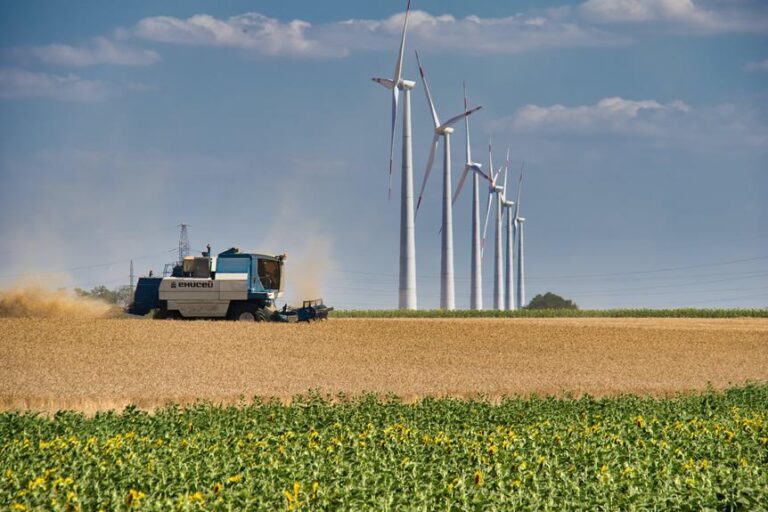Exploring Educational Resources on Renewable Energy
Are you curious about renewable energy but don’t know where to start? We’ve got you covered!
In this how-to guide, we will take you on a journey to explore educational resources on renewable energy. From the benefits of renewable energy sources to understanding the environmental impact, we’ll equip you with the knowledge you need to make a positive difference.
Get ready to dive into the world of renewable energy education programs and discover online resources that will empower you to join the green revolution.
Let’s embark on this exciting adventure together!
Benefits of Renewable Energy Sources
Renewable energy sources are increasingly becoming more commonly used as a reliable and sustainable solution to meet our energy needs. Not only do they provide environmental benefits, but they also offer significant economic advantages and job opportunities.
Investing in renewable energy can lead to a more robust and resilient economy. By transitioning to cleaner energy sources, we can reduce our dependence on fossil fuels, which are subject to price volatility and geopolitical tensions.
Moreover, the renewable energy sector has the potential to create millions of jobs, from manufacturing and installation to maintenance and research. These job opportunities span across various skill levels, providing a pathway to economic growth and social mobility.
Embracing renewable energy not only benefits our planet but also offers a promising future for our economy and workforce.
Types of Renewable Energy Technologies
As we explore the various options for transitioning to cleaner and more sustainable energy sources, it’s important to understand the different types of renewable energy technologies available.
Renewable energy storage solutions and innovations in renewable energy technologies are key areas of focus in today’s energy landscape.
One type of renewable energy technology is solar power, which harnesses the sun’s energy through solar panels.
Wind power is another technology that utilizes wind turbines to convert wind energy into electricity.
Hydroelectric power harnesses the power of flowing water to generate electricity.
Biomass energy is derived from organic materials such as plants and agricultural waste.
Geothermal energy utilizes the heat generated from the Earth’s core to produce electricity.
These various types of renewable energy technologies offer sustainable alternatives to traditional fossil fuels, helping us create a greener and more environmentally friendly future.
Understanding the Environmental Impact
To fully comprehend the environmental impact of renewable energy technologies, we must assess their effects on ecosystems and natural resources.
One key aspect to consider is the carbon footprint of these technologies. Unlike traditional energy sources, renewable energy technologies produce little to no greenhouse gas emissions during operation. This means that they contribute significantly less to climate change and air pollution.
Additionally, renewable energy sources are often more sustainable than fossil fuels, as they rely on resources that can be replenished naturally, such as sunlight, wind, and water. By investing in renewable energy and supporting sustainability initiatives, we can reduce our dependence on finite resources and protect the environment for future generations.
Understanding the environmental impact of renewable energy technologies is crucial for making informed decisions and taking steps towards a greener future.
Exploring Renewable Energy Education Programs
We can gain a deeper understanding of renewable energy and its environmental impact by exploring various educational programs available. Here are some options to consider:
- Renewable Energy Workshops: These workshops provide hands-on experience and practical knowledge about renewable energy technologies. They often include activities such as building and installing solar panels or wind turbines, allowing participants to learn through direct engagement.
- Renewable Energy Certifications: These certifications validate your expertise in the field of renewable energy. They can enhance your career prospects and demonstrate your commitment to sustainability. Examples include the Certified Renewable Energy Professional (REP) and the Leadership in Energy and Environmental Design (LEED) certifications.
- Online Courses: Many reputable institutions offer online courses on renewable energy. These courses cover topics ranging from the basics of renewable energy systems to advanced concepts like grid integration and energy storage.
- University Programs: Several universities offer specialized programs in renewable energy. These programs provide a comprehensive curriculum that combines theoretical knowledge with practical skills, preparing students for careers in the renewable energy industry.
Accessing Online Renewable Energy Resources
Let’s dive into how we can access online renewable energy resources.
As individuals looking to expand our knowledge and expertise in renewable energy, it’s crucial to take advantage of the vast array of online resources available to us.
One way to enhance our understanding is by pursuing renewable energy certifications. These certifications provide a recognized credential that can boost our credibility and open up new opportunities in the field.
Additionally, online platforms offer a wealth of research opportunities for us to explore. From academic publications to industry reports, these resources provide valuable insights and information on the latest developments in renewable energy.
Conclusion
In conclusion, exploring educational resources on renewable energy is a beneficial and practical way to understand the types of technologies available and their environmental impact.
By accessing online programs and resources, we can gain valuable knowledge and skills to contribute to a sustainable future.
So let’s dive into the world of renewable energy, educate ourselves, and make a positive impact on our planet!






